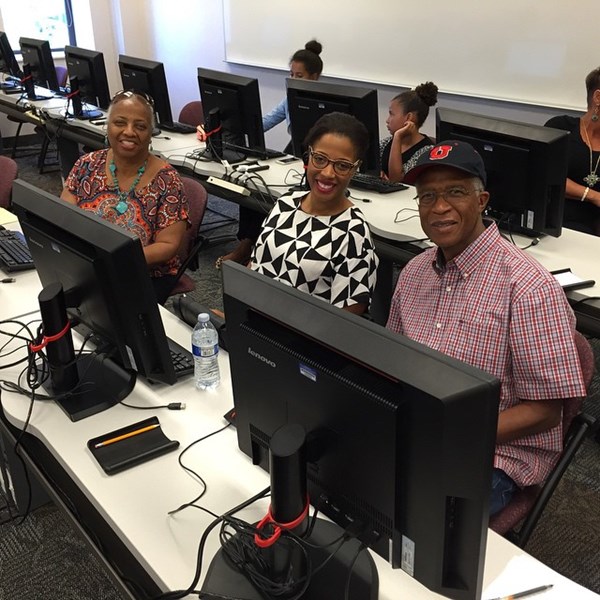SALT LAKE CITY, Dec. 1, 2015 (GLOBE NEWSWIRE) -- FamilySearch International, the Smithsonian National Museum of African American History and Culture (NMAAHC), and the Afro-American Historical and Genealogical Society (AAHGS) are pleased to announce that exciting milestones have been reached with the historic Freedmen's Bureau Project (see DiscoverFreedmen.org) since its launch on Juneteenth of this year. The 10,000th online indexing volunteer has contributed to the project, and volunteers have made more than 15 percent of the records searchable online, bringing the total number of records indexed to more than 440,865. The goal of this ambitious project is to make more than one million Civil War era historical records—records of about four million freed men, women, and children and refugees—discoverable at the click of a button online.
The Freedmen's Bureau, officially known as the Bureau of Refugees, Freedmen, and Abandoned Lands, served all who needed intervention after the war. In the name of the bureau, the "freedmen" referred to were black, the "refugees" were white, and the "abandoned lands" were lands once owned by landowners who were eventually re-settled. From 1865 to 1872, the bureau opened schools, managed hospitals, rationed food and clothing, and solemnized marriages. In the process, it gathered information about marriages and families, military service, banking, schools, hospitals, and property records on potentially four million African Americans.
Since the project's launch in June of this year, 10,223 volunteers have contributed online from across the nation. Many more volunteers are needed. The goal is to have the records fully indexed and freely available online in time for the opening of the Smithsonian National Museum of African American History and Culture in November 2016.
"We came together with great anticipation and excitement," said Bernice Alexander Bennett, who organized a recent indexing event in Washington, D. C., which representatives from five AAHGS chapters attended. "Through this process we have identified an array of documents that show how difficult it was for this country to come back together with individuals from all walks of life. Hence, the Freedmen indexing project is not just for African Americans and represents a major initiative for everyone."
At the University of Oklahoma, two pastors from the local community challenged each other's congregations to an "index-off" competition. In Rio Rancho, New Mexico, many volunteers indexed their first records online in participating in this project. Elizabeth Aikin, a representative of the Southern Christian Leadership Conference of New Mexico, was one of them. In just a few hours and with a little patience, Aikin was able to read through several pages of historical Freedmen's Bureau labor contracts online and transcribe the names in those records. Like many volunteers, she was inspired by the opportunity and importance of making the Freedmen's Bureau records available and thereby helping millions of African Americans discover their roots and reconnect their stories.
"We greatly appreciate the contributions made by our partners, by national and international volunteers, and by Smithsonian volunteers," said Hollis Gentry, genealogy specialist at NMAAHC. "Each indexed document brings us closer to reclaiming our ancestral heritage and historical past. We look forward to the completion of the project in 2016 and invite everyone with an interest in American history and African American culture to support our efforts to index the records of the Freedmen's Bureau."
It only takes a little training for anyone with a computer and Internet access to join the project, which involves reading online the digital images of the records and entering names and other key information to make them searchable. Once the records are indexed and published online, finding an ancestor can be as easy as going to FamilySearch.org, entering a name and, with the touch of a button, discovering your long-hidden family member.
Free assistance is available at any of the 1,864 family history centers throughout the nation. For more information or to volunteer for the initiative, visit discoverfreedmen.org. You can also follow the effort on social media using the hashtag #DiscoverFreedmen.
Photo 1: Sample Marriage Certificate from Freedmen's Bureau
Photo 2: Volunteers helping index historic Freedmen's Bureau records online L-R: Pat Washington, Sherryl Nelson, Odie Washington
About DiscoverFreedmen.org
The #DiscoverFreedmen project is making thousands of historical Freedmen's Bureau records freely and easily searchable online to help African Americans reconnect with their Civil War-era ancestors. The project was created through a set of partnerships between FamilySearch International, the National Archives and Records Administration (NARA), the Smithsonian National Museum of African American History and Culture, the Afro-American Historical and Genealogical Society (AAHGS), and the California African American Museum.
Photos accompanying this release are available at:

